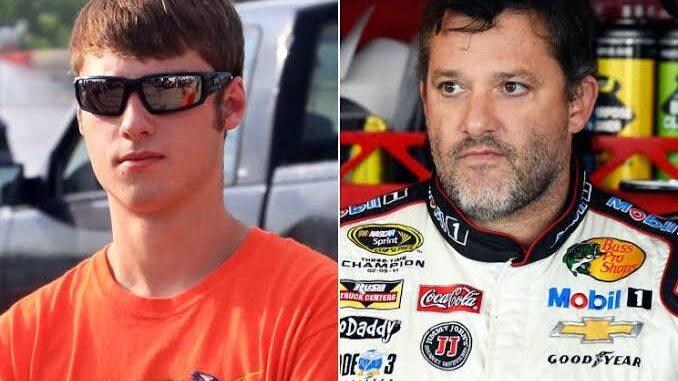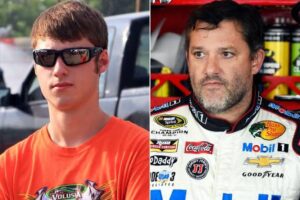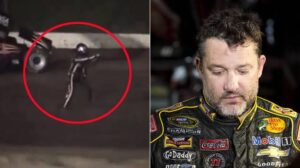
Ward Family Reignites Legal Battle with Tony Stewart and Canandaigua Motorsports: New Wrongful Death Lawsuit Alleges Suppressed Evidence, Criminal Negligence
Canandaigua, NY – May 22, 2025 — Nearly eleven years after the tragic on-track death of 20-year-old sprint car driver Kevin Ward Jr., the Ward family has filed a new wrongful death lawsuit against NASCAR icon Tony Stewart and Canandaigua Motorsports Park. The lawsuit, officially filed in New York State Supreme Court on May 22, 2025, alleges criminal negligence, reckless conduct, negligent supervision, and willful suppression of critical evidence—despite a previously undisclosed 2018 out-of-court settlement.

In a bold and emotional move, the Ward family claims that recent revelations have shattered the legitimacy of the original legal resolution and demand the reopening of the case to finally pursue what they call “true and complete justice.”

Background of the Tragedy
On August 9, 2014, during a dirt track sprint car event in upstate New York, Kevin Ward Jr. was involved in a collision with Tony Stewart’s vehicle, sending Ward into the outside wall. Under a caution flag, Ward exited his wrecked car and walked onto the live track, seemingly attempting to confront Stewart. As Stewart’s vehicle came around the bend, it struck Ward, killing him instantly.
While a grand jury in 2014 declined to press criminal charges, citing lack of intent and toxicology reports that indicated Ward had cannabis in his system, the incident caused national debate and led to a private legal settlement between the parties in 2018.
New Grounds for Legal Action
According to the new lawsuit filed by the Ward family, three critical developments have prompted the reopening of the case:
- Newly Uncovered Evidence:
The filing includes video and radio communication logs that were allegedly suppressed during the original investigation. These materials—leaked by a former employee of Canandaigua Motorsports Park—show race control alerting all drivers, including Stewart, about a pedestrian on the track well before the collision occurred. The Ward family claims this directly contradicts Stewart’s past statements about not seeing Ward until it was too late. - Undue Influence and Misrepresentation During Settlement Negotiations:
The family now argues that they were pressured into the 2018 settlement under false pretenses. According to the new legal team representing the estate of Kevin Ward Jr., the family was never made aware of critical footage or internal communications that could have dramatically shifted liability in the case. - Negligence by the Venue and Race Officials:
Canandaigua Motorsports Park is accused of systemic safety failures, including poor track lighting, inadequate response systems, and a failure to enforce safety procedures for both drivers and track marshals during caution periods. The lawsuit claims that these failures created conditions that made the fatal incident not only possible, but preventable.
Demands and Legal Relief
The Ward family is now seeking:
- Revocation of the prior 2018 settlement on grounds of fraudulent concealment
- Compensatory and punitive damages
- Public acknowledgment of wrongdoing from both Stewart and Canandaigua Motorsports Park
- Implementation of mandatory safety reform protocols at regional racing venues nationwide
Family’s Public Statement
“We were told to accept what happened and move on,” said the Ward family in a press release. “But when evidence is buried, when voices are silenced, and when accountability is traded for silence—justice is not served. This isn’t just about our son anymore. It’s about every racer, every family, and the integrity of the sport we all love.”
Legal and Public Reactions
Tony Stewart’s legal representatives have yet to issue a public statement. Legal analysts note that overcoming the prior settlement agreement will be a major legal hurdle, but they also acknowledge that suppressed evidence and demonstrable bad faith could provide a compelling basis for judicial review.
The motorsports community is watching closely as the case could set major precedents regarding athlete accountability, track safety, and the ethical weight of private settlements in high-profile tragedies.
As of now, a court date has not been scheduled.